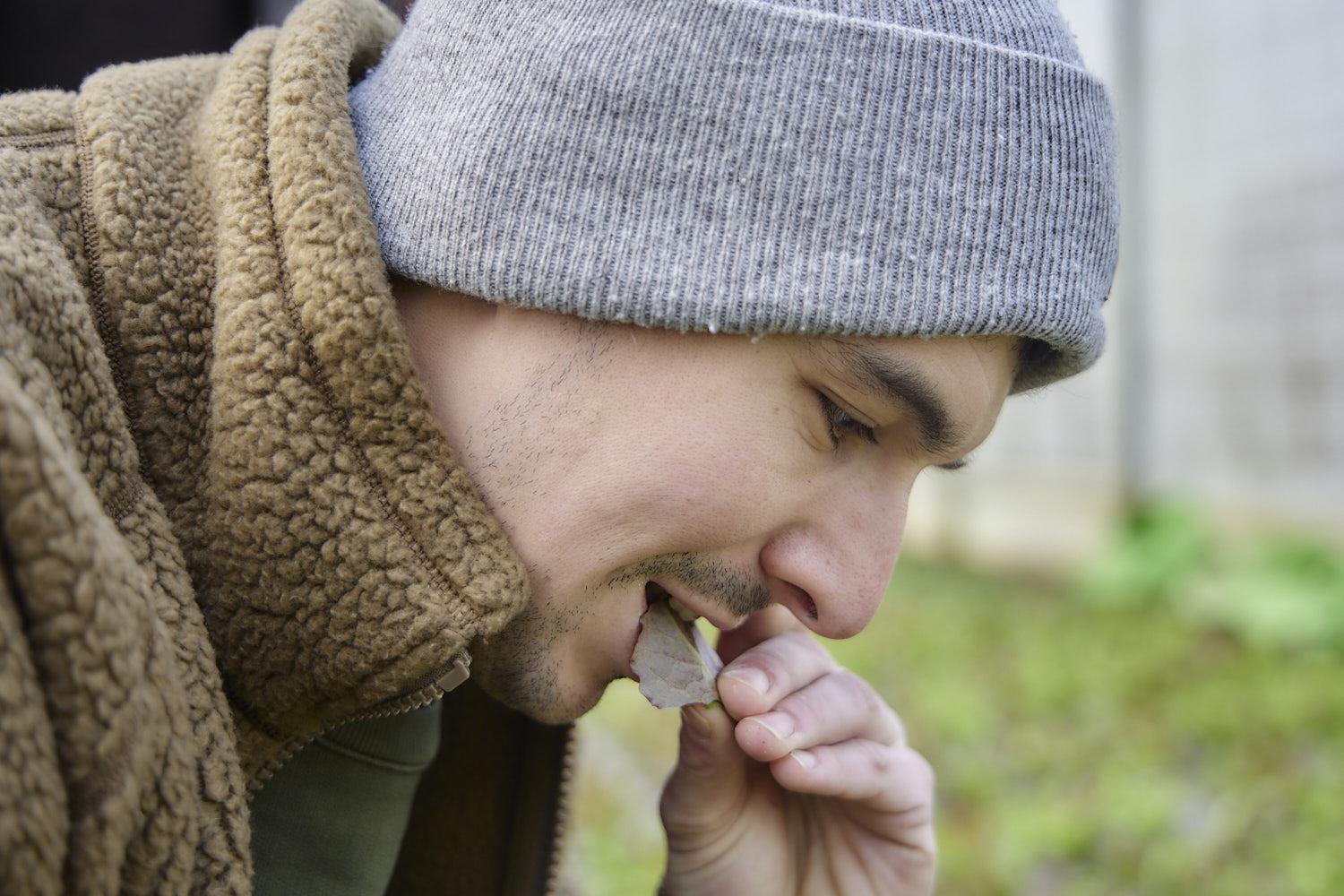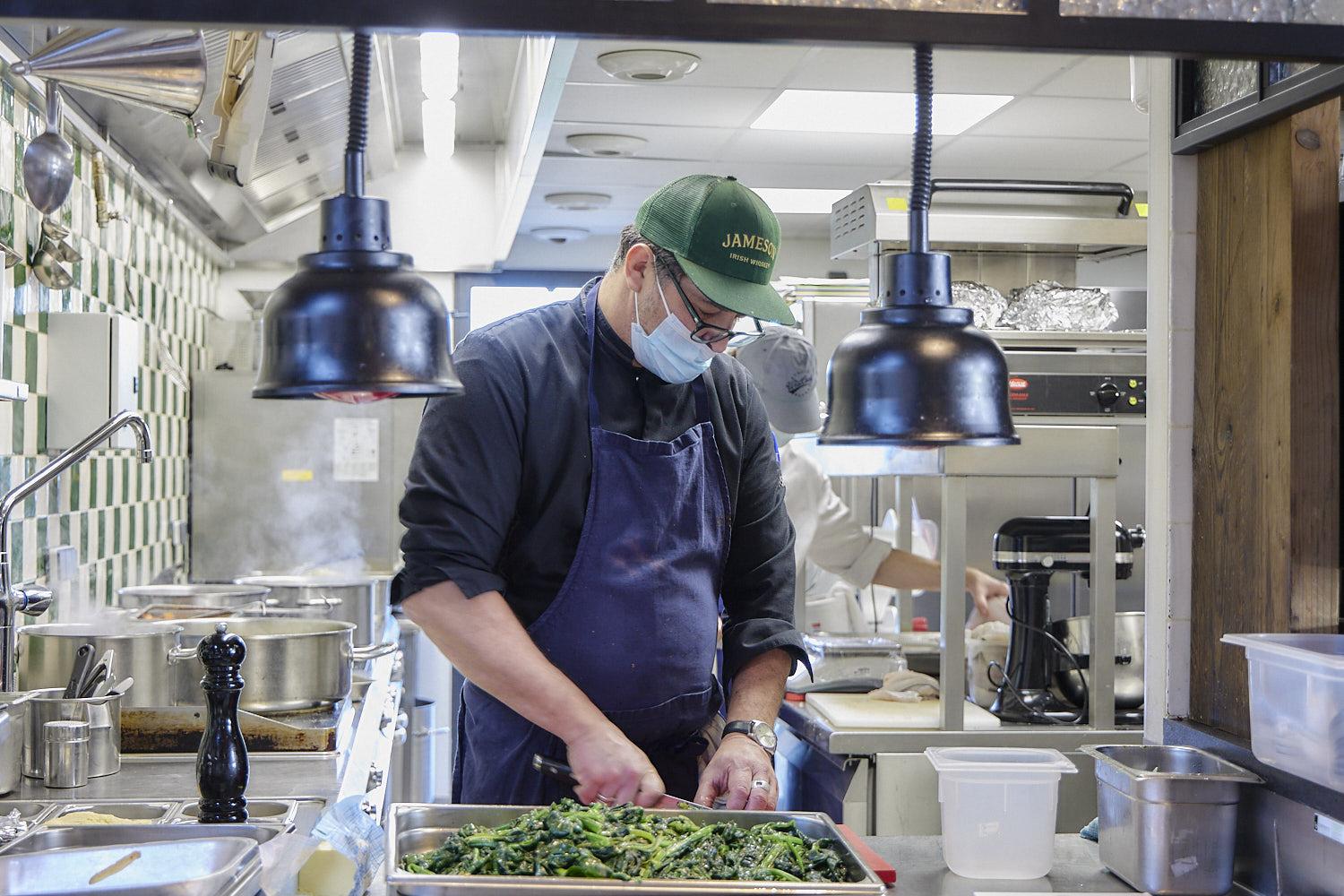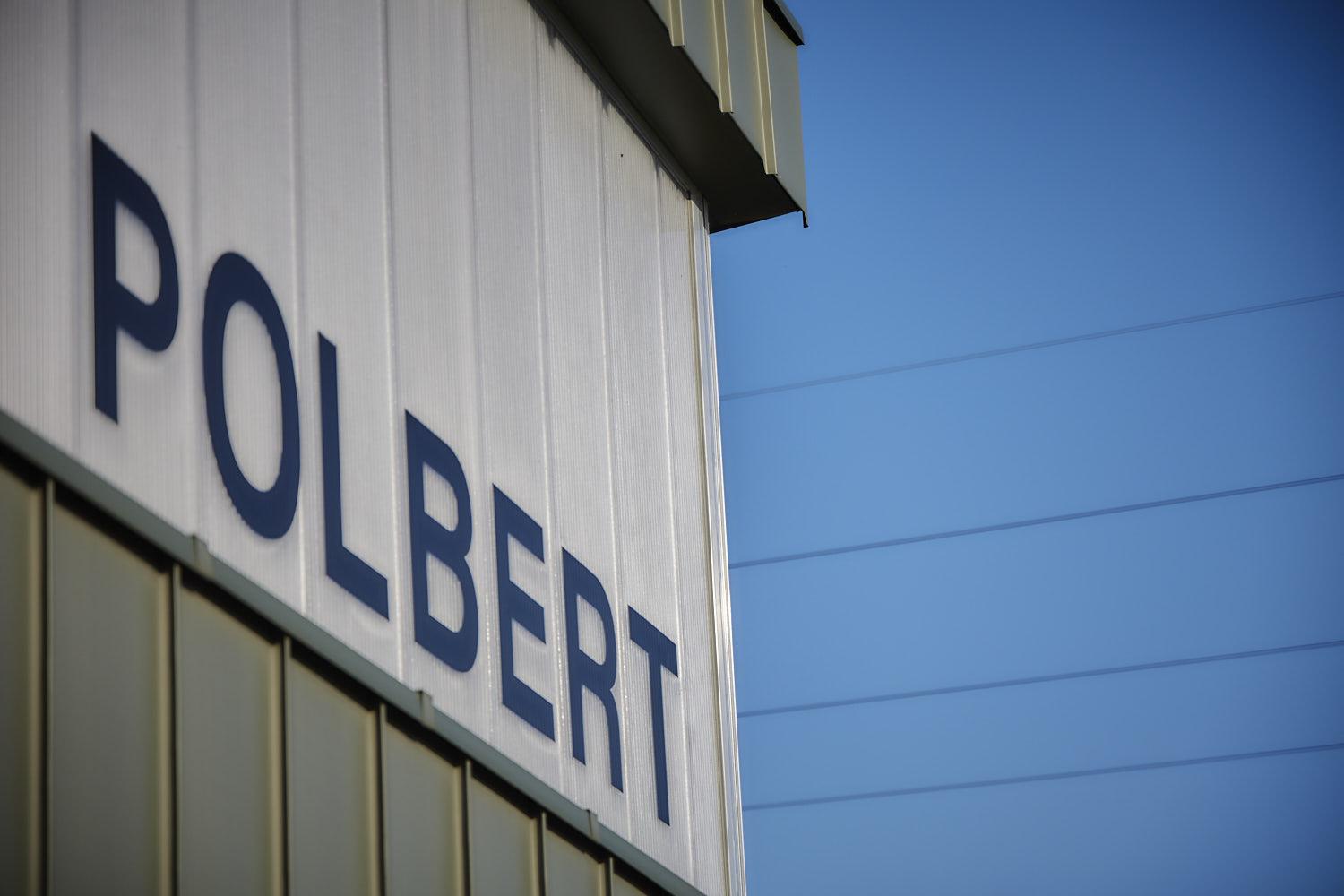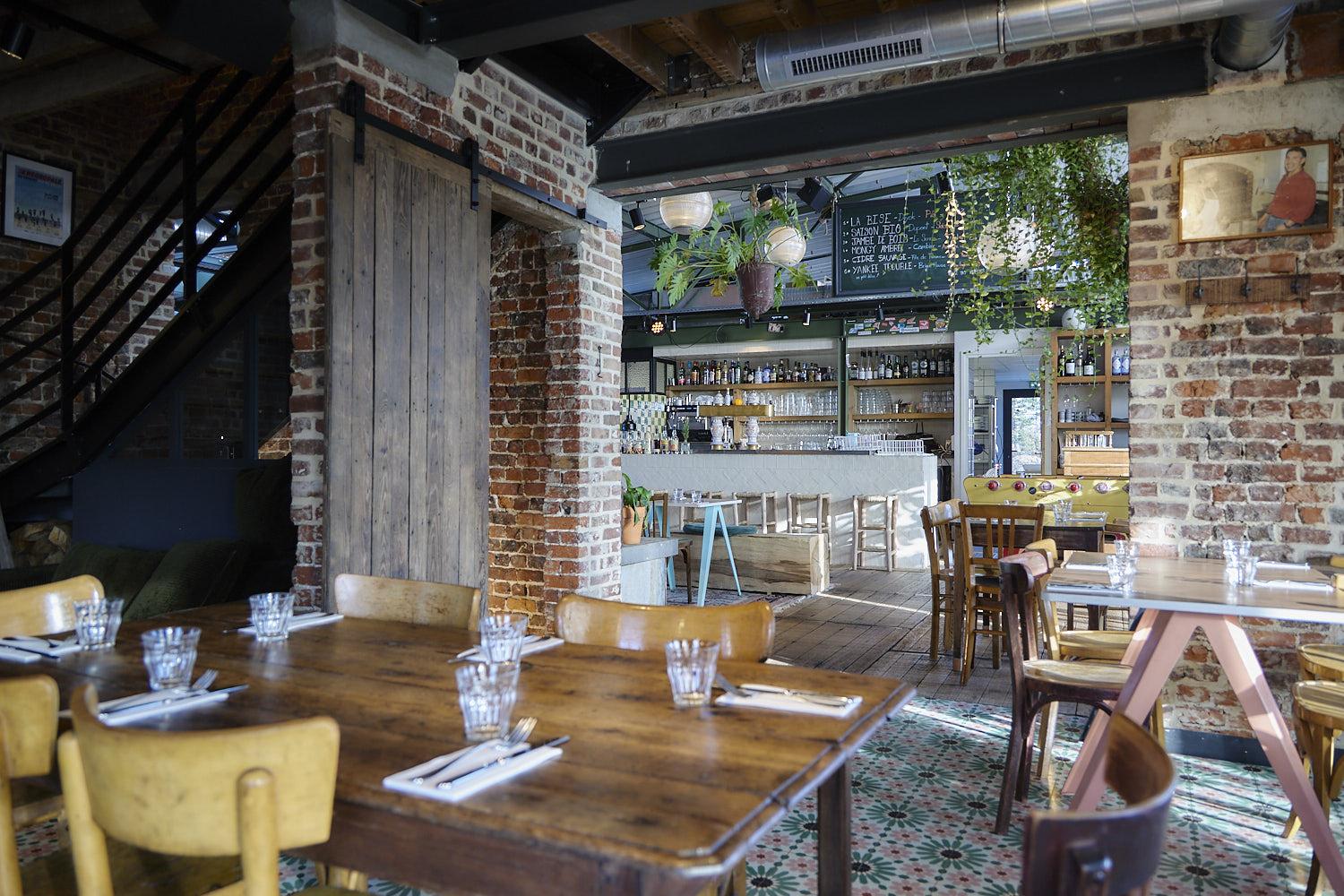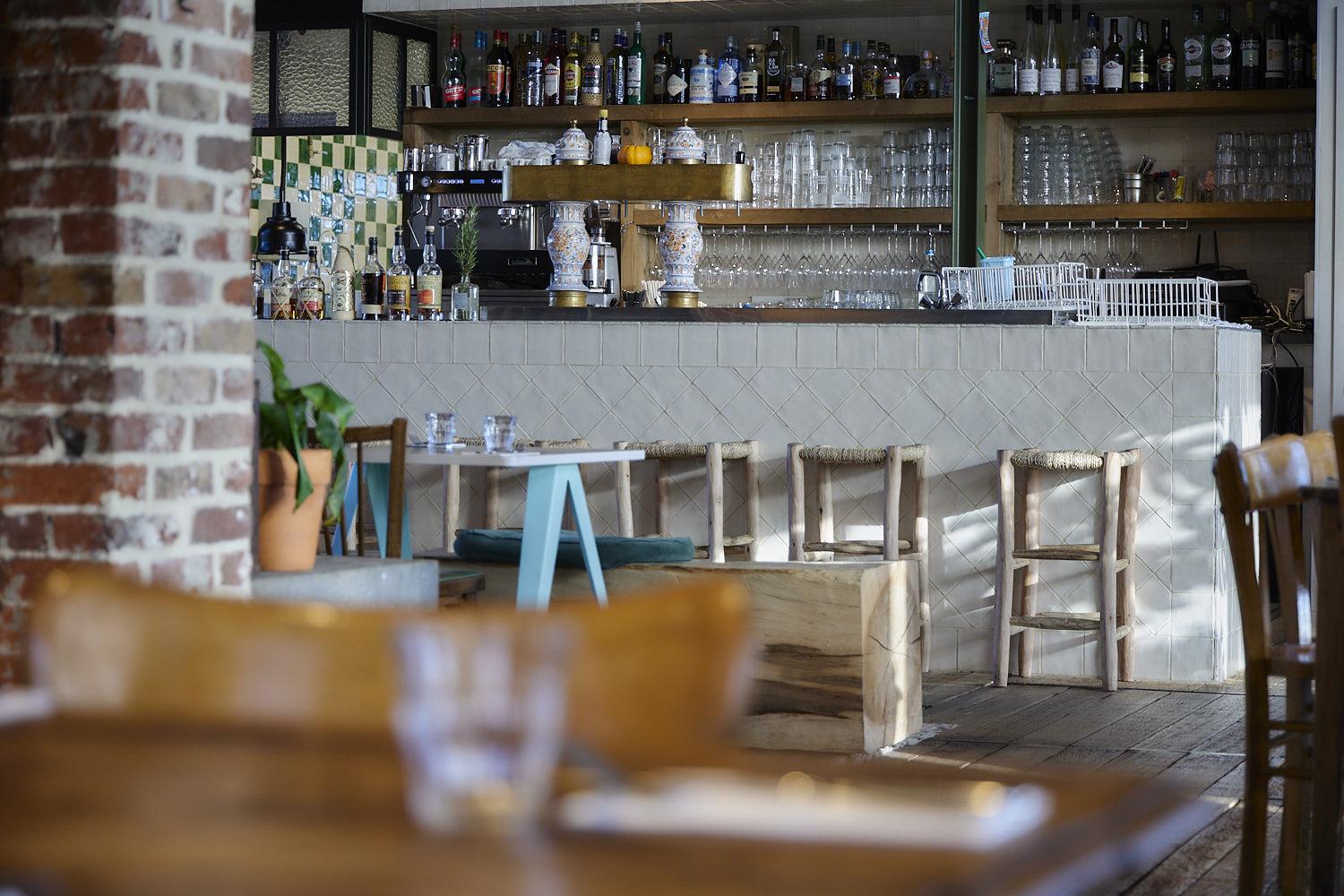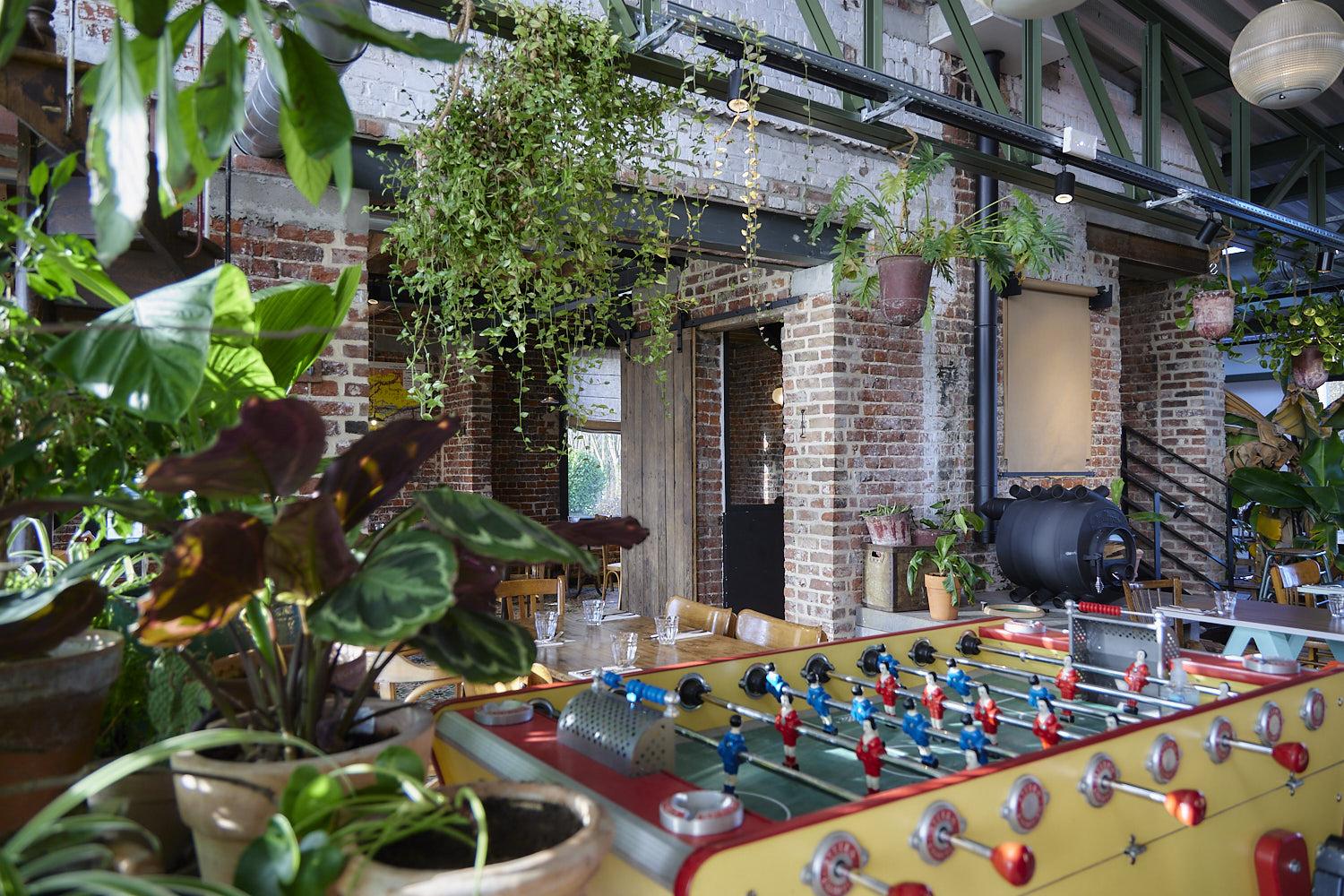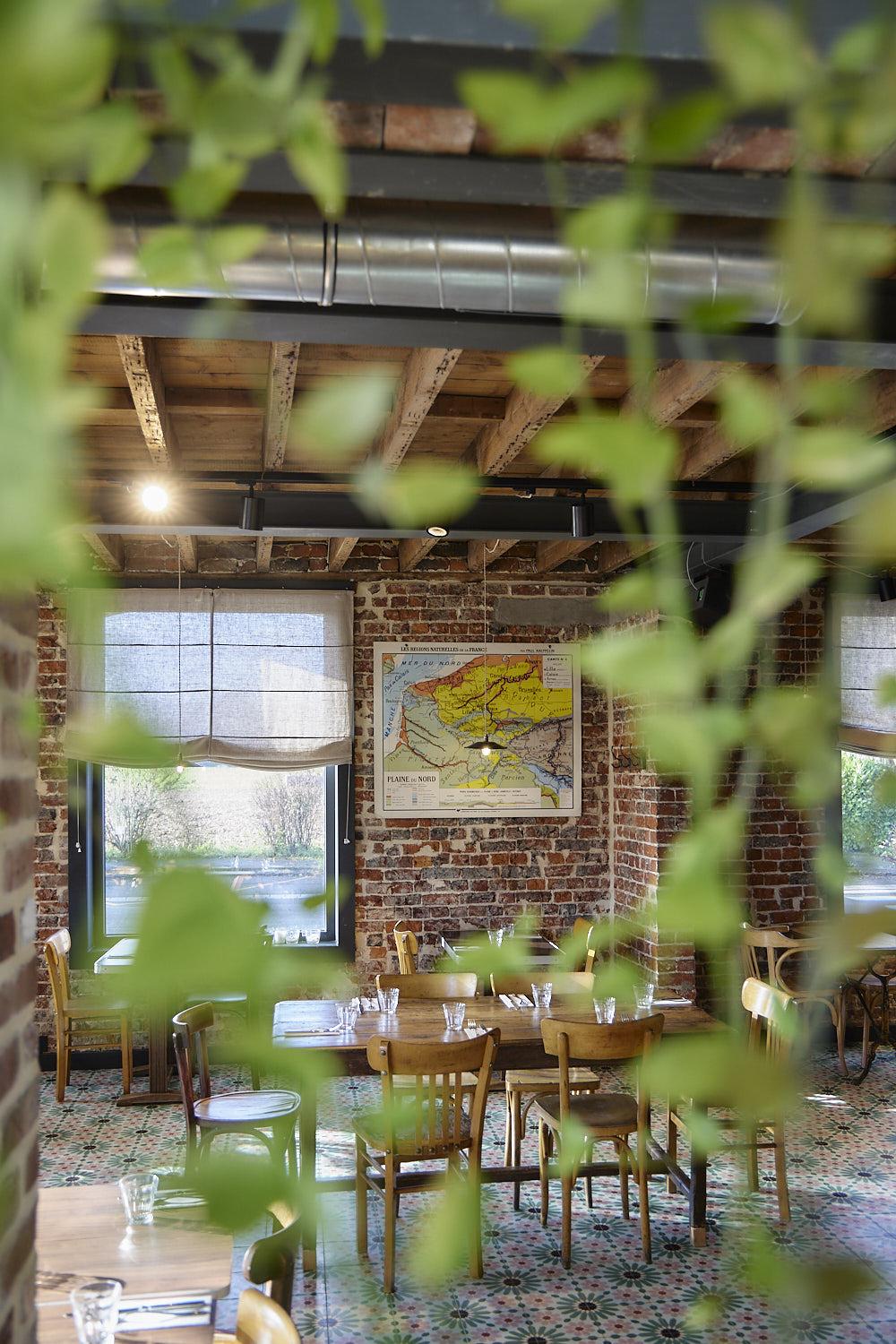
Terroir: the unifying effect of vegetables
Share this story
Love for cooking starts with love for the product. How it gets its flavour, how it gets to our plate and how inspiring it is for the chef. Terroir and love, even passion for produce and cooking, go hand in hand. Especially when it comes to vegetables. When you cook with what the soil gives you at the moment, every day brings a surprise.
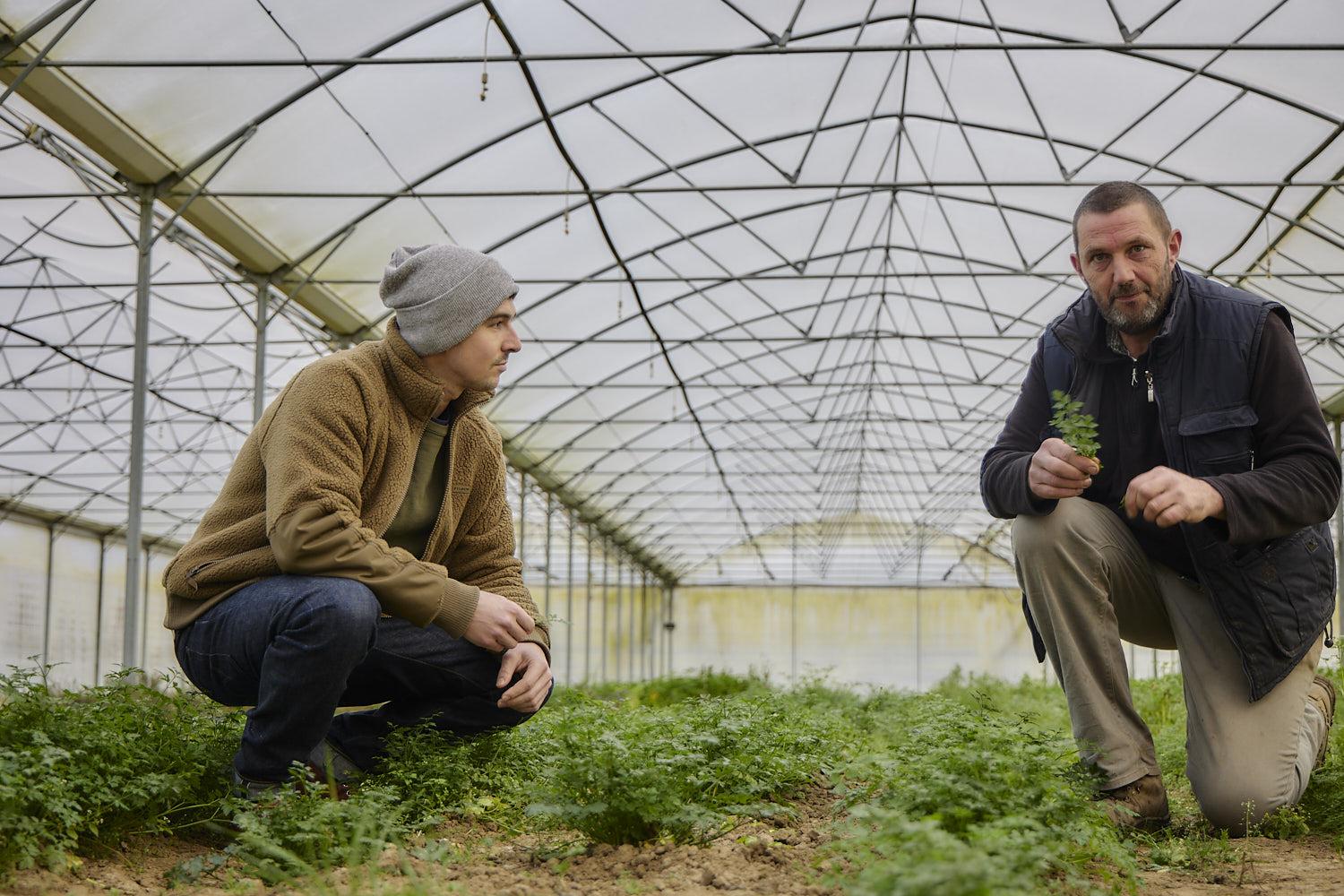
Local cooperation
The days when plates were neatly divided into a piece of meat or fish, potatoes, rice or pasta and a portion of vegetables are thankfully long gone. Thanks to the creativity of chefs, the pure taste of seasonal vegetables is increasingly playing a starring role. They do so with knowledge of what thrives locally, the power of seasons and local soil. And through collaborations with local producers.
It is the terroir that gives vegetables their unique flavour. Polbert, a bistro in northern France's Lille, is an example of the prominent role of vegetables in the flavour palette of contemporary plates. "We therefore collaborate with a local greengrocer," Paul and Hubert, managers of Polbert, tell us. "As sons of local chicory farmers, we know than the taste of vegetables starts with the knowledge of the soil, of the plant and of the interplay between different crops. Knowledge of terroir, in other words. The relationship with our local greengrocer is worth its weight in gold."
That local greengrocer is Jean Michel. On his farm, five kilometres from the bistro, he grows vegetables, herbs and fruits season by season. It is there where the brothers get their vegetables three times a week. What ends up on their customers' plates is the result of the interplay between nature, the farmer and the chef.
Knowledge of soil
Jean Michel's land looks like a mishmash of crops. Mustard lettuce, arugula and spinach are criss-crossed and here and there a mint plant and rosemary sticks out above the other plants. The beds in which the vegetables are planted are anything but perpendicular and meander charmingly through the earth.
The greengrocer doesn't do this lightly. The plants work together to keep the soil nutrient-rich and nurture new, young plants year after year. Without ever using a pesticide or insecticide, the soil has found a steadfast balance. Knowledge of the soil and of terroir ensures tasteful crops of the highest quality, day after day, year after year.
"Jean Michel's speciality? That's what we call in French 'plantes aromatiques'. Red basil, oregano, different kinds of parsley, coriander,..." Paul knows how to tell. "They are additional seasonings for the salads served by Polbert. Jean Michel's own favourites. Or as he puts it himself 'Avec la salade, jamais malade'."
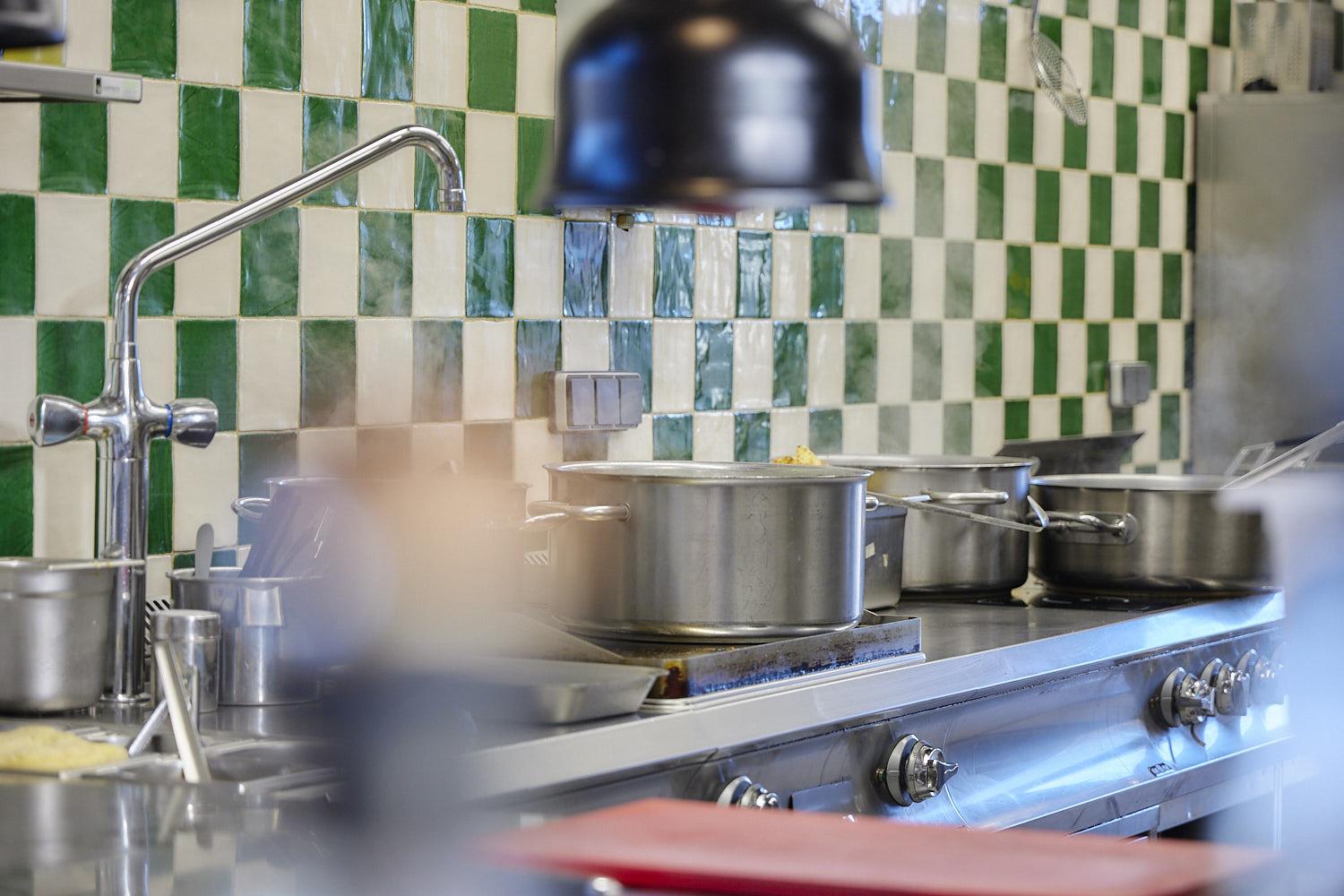
Terroir benefits from short chain
Whereas Paul and Hubert buy directly from the farmer himself, Jean Michel also offers his wares through local markets. In doing so, he participates in the short chain. In other areas, too, Jean Michel ensures that his vegetables find a quick and short way from field to fork. "What I harvest in the morning is already on the plate in the afternoon or evening. At restaurants like Polbert or with the consumer himself."
What does short chain mean?
Short chain is a sustainable strategy that starts from a local outlet. In other words, there is a direct relationship between producers and consumers. Examples include farm shops, farmers' markets, self-picking gardens, etc.
There are many advantages to short chains for both the farmer and the consumer. The farmer receives a fair price, has more certainty about the sale of his produce and more opportunities in urbanised areas. The consumer, in turn, buys fresh and high-quality food close to home, reduces packaging waste and rediscovers local agriculture.
After harvesting, crops are collected in wooden crates and stored in cold storage. For each order, a Jean Michel employee selects the vegetables and cleans them. "We do not consider the shape of the vegetables. A crooked courgette is just as tasty as a perfectly straight one. Besides, we don't go about cleaning the vegetables thoroughly either. A potato from our place, it still has some soil on it when you buy it. It is also our way of teaching consumers more about where the vegetables come from: from the farmer, straight from the ground."
Paul adds: "You'll also find only seasonal vegetables here. The vegetables that the soil gives us at that time. Our chef, whose name is also Paul, likes nothing better than being creative with this. I also think vegetables unite people. Because they are such honest products, straight from the ground, full of flavour and the result of collaboration between farmer and nature."
Cosy dining together
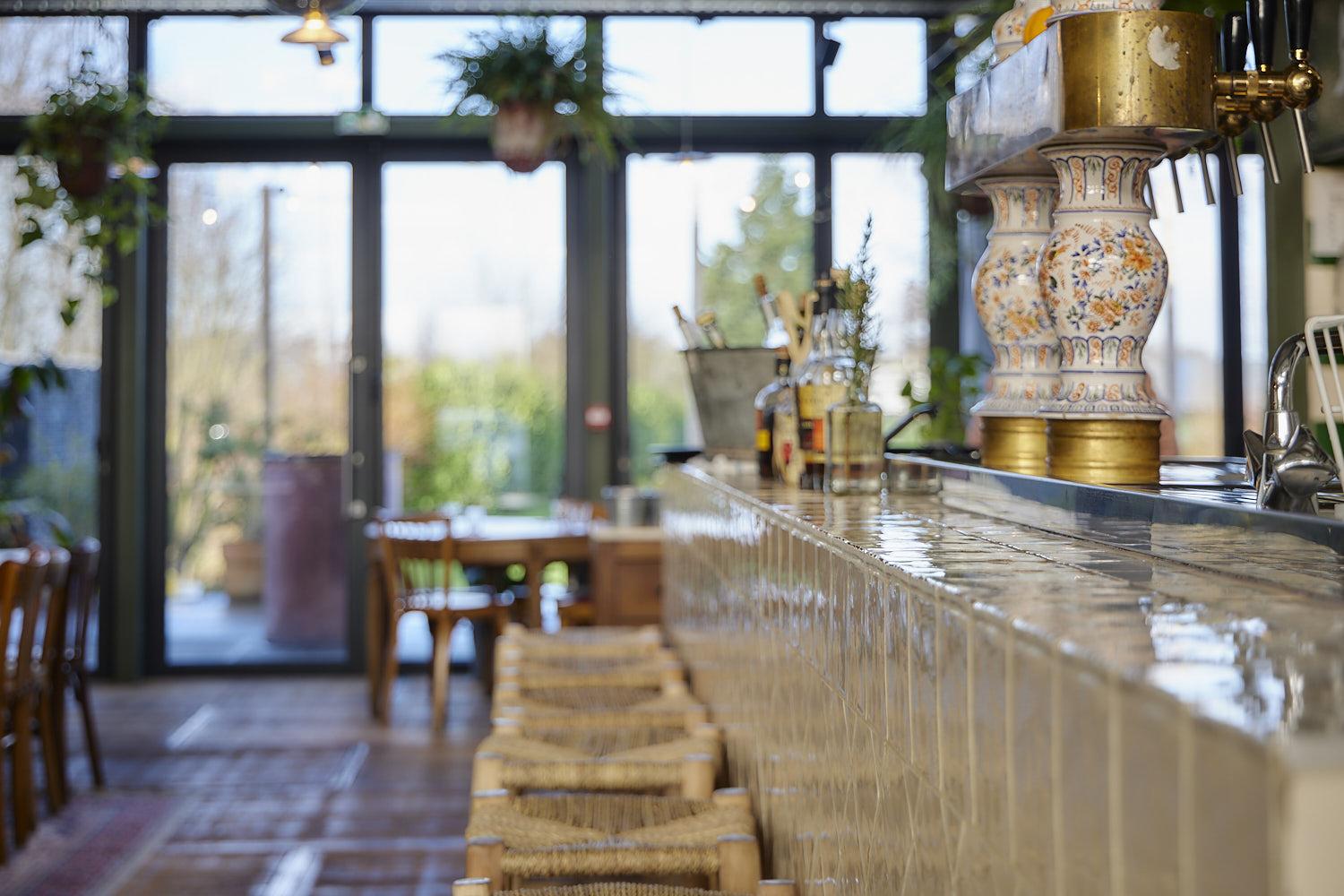
"In Polbert, vegetables also literally unite people around the table. They get to know the vegetables from with us again. In this way, forgotten vegetables no longer exist. What comes out of the soil comes onto the table. That was the whole concept behind our restaurant: dining like at home. Cosy, with family or friends and without too many frills. The flavours speak for themselves," Hubert continues.
When vegetables are given the chance to fully surround themselves with their terroir, pure, surprising flavour effects emerge. In itself, it means that a northern French carrot cannot taste the same as a Belgian-Limburg one. This is because the soil is different and so is the way farmers grow their crops. Thanks to the short chain, knowledge of terroir and the creativity of the chef, you taste the region in your plate.
"We go 100% for local as far as possible. That translates into local beers and juices on our menu, the good relationship with our greengrocer and our search for local producers for charcuterie. On the other hand, you will find coffee and chocolate with us. For those, it's hard to find a local alternative. With citrus fruits, it's a similar story. They are also on our menu but only in season," Paul illustrates as he goes over the menu. He points to a small box at the bottom: "This is where we list the producers we work with. We are as proud of their products and way of working as they are. For us, buying local is anything but a promotional stunt. It is 'du bon sense'."
Creative with vegetables
Besides seasonal vegetables, chef Paul van Polbert also likes to play with seasonal ways of preparing vegetables. "In summer, for example, we freshen up salads with tomatoes, grilled aubergines and courgettes. In winter, vegetables such as cabbage, Brussels sprouts, carrots and parsnips form the basis for so-called 'stoemp' and stews. With vegetables, you can go in any direction. As a chef, it is great to play with the textures and flavours of different vegetables. So delicious that you have to share it!"
They interpret the latter very literally at Polbert. In the evening, all guests gather around the table and share what the pot holds. From duck ravioli with carrot, courgette and thyme to a fabric pot of chicken with spinach and onions. This is how family and friends find each other around local dishes. United by taste, with respect for the product and its terroir.
